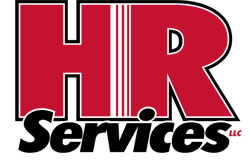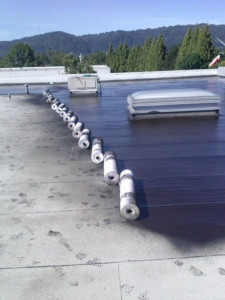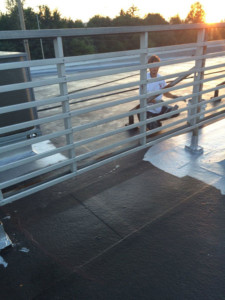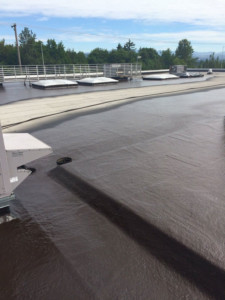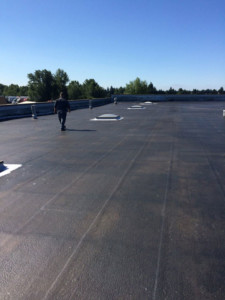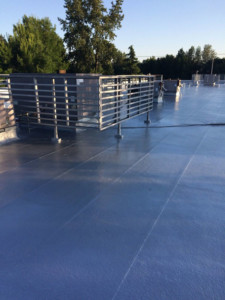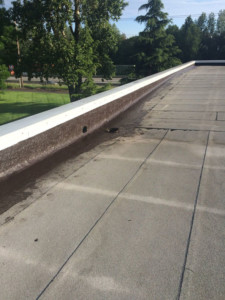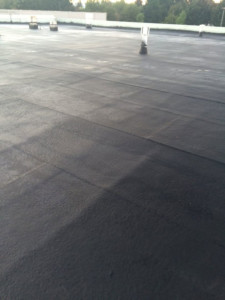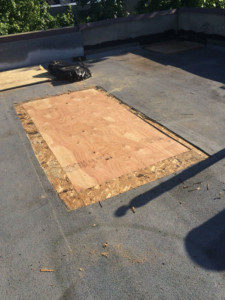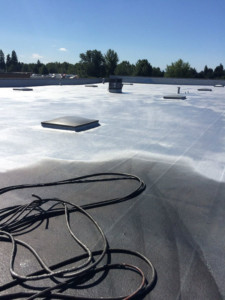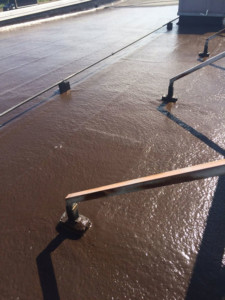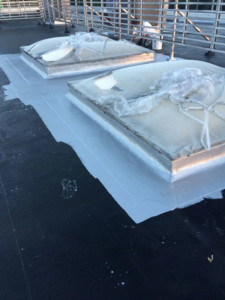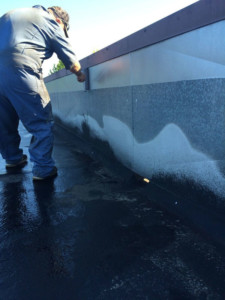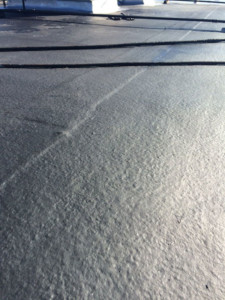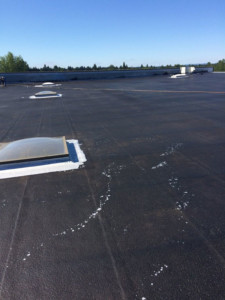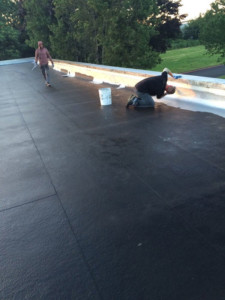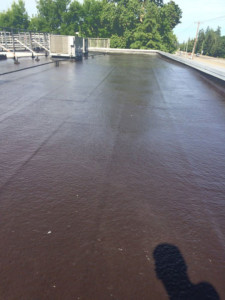Advantages of the Glas-Shield System
- Cold Process System: The Glas-Shield system is a fluid applied “Monolithically sealed” system which requires no heat during application. Because the Glas-Shield Compound is not heated the asphalt in the Glas-Shield Compound retains its full natural elasticity.
- Elasticity: Each particle of asphalt is surround by clay, therefore, locking in the high ends of asphalt allowing the asphalt to retain its elasticity indefinitely.
- Glass Reinforced: The Glas-Shield System is reinforced with inorganic fiberglass strands that are distributed throughout the entire thickness of the Glas-Shield System in a 360-degree Jackstraw Pattern. This method of reinforcement is accomplished with the Fortron Gun.
- Economical: Cost of the Glas-Shield System when computed on an annual basis (total cost of the roof job divided by its life expectancy) makes it one of the best roofing buys available. Investigate before you buy, don’t be mislead by exaggerated claims.
- Versatile: Our “manufactured in place” roof system can be applied to almost any sloped roof from vertical to flat and on most surfaces including metal, gravel, mineral cap sheets and smooth-surfacing roofs.
- Seamless: The final surface is smooth and without seams, making it an easy roof to clean and an excellent ase for heat reflecting and other color surfacing.
- Light Weight: The Glas-Shield System weighs substantially less than other systems, approximately 40 pounds per square versus 100 pounds for a cap sheet or 450 pounds for gravel.
- Will not Alligator: No volatile solvents are used in Glas-Shield Compound. Hot and Cut-Back Asphalts make very poor wearing surfaces for roofs because of their alligatoring. (Red: “Manual of Build-up Roof Systems” by C.W. Griffin, P.E.)
- Resists Blistering: Glas-Shield Compound’s Vapor permeable microscopic channels let water vapor escape to the weathering side of the membrane, but won’t let water in. Vapor pressures that cause blistering don’t develop.
- Won’t Sag, Slide, or Flow: The system is unaffected by high temperatures that can cause a roof to move. (Red: A.S.T.M. Spec No. D1227)
- Strong: The inorganic fiberglass strands within the Gas-Shield System have more tensile strength than steel. Because these glass fibers are distributed throughout the Glas-Shield System in a 360-degree Jackstraw pattern, stress created by thermal and building movement is distributed more evenly throughout the Glas-Shield membrane. This greatly reduces that chance of splitting in the roof membrane (one of the major problems in maintaining roofs over an Extended period of time).
- Excellent Weathering Characteristics: After the system has cured, you have pure asphalt encased in a special clay to form an inorganic weathering surface that far outlasts hot asphalt and solvent base (cut back) asphalts. Don’t accept less than the best! (Ref: “Manual of build-up Roof System” by C.W. Griffin, P.E.)
- Class “A” Fire Retardant: When the Glas-Shield System is applied over a 3-ply fiberglass build-up roof, polyester sheets, SBSD or APP modified bitumen systems, on a wood combustible deck, Western Colloid acknowledges that you will receive a Class “A” Fire Retardant Roof from I.C.B.O or Underwriters Laboratory.
- Eco Friendly
